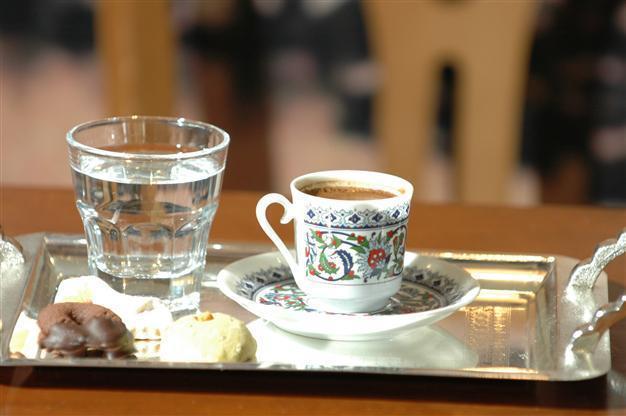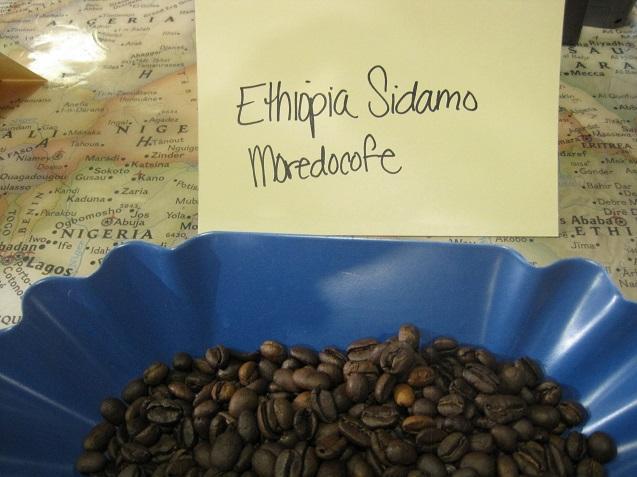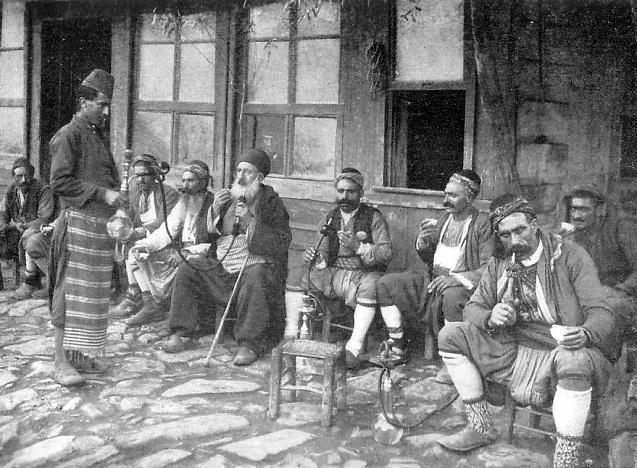Five facts you don’t know about Turkish coffee
ISTANBUL

As Hürriyet writer and gourmet Mehmet Yaşin asked recently, where can we put Turkish coffee in the wider coffee world? How come people don’t desire it as much as they desire Italian, American, French coffees? Is it because of their advertisements or is it because of its taste? The answers might be in five facts that you probably don’t know.
1) The origin of Turkish coffee is South Ethiopia, not Yemen
We always say that Yemen is the birthplace of coffee, but do we really know where its true origins are? According to history books, Kaffa in South Ethiopia is the birthplace of coffee. Of course, at that time Ethiopians weren’t drinking coffee. They were blending the coffee seeds and making dough from the seeds to use in food products. Only after many years did Yemen start to produce coffee.
2) It is the invention of a Muslim cleric, though it was once banned by Islam
The first person who discovered coffee was reportedly Ebu’l Hassan Şazeli, the founder of Şazeli sect. According to legend, while Sheikh Şazeli was on his way to the pilgrimage to Mecca in 1258, he boiled some of the coffee seeds in his pocket. But no one knows who gave him this recipe. Coffee sellers accept the sheikh as their patron saint. Because of this title, in the last decades of Ottoman Empire, every coffee shop had a banner reading “O His Holiness Sheikh Şazeli.”
According to Ottoman chronicler Solakzade, following the Egyptian expedition of Sultan Selim the Grim, coffee shop owners brought coffee seeds to Istanbul from Yemen, Cairo and Alexandria. The coffee was popularized in the daily life of the Ottomans during the rule of Süleyman the Magnificent. With the help of Turkish ambassadors, starting from Paris and Vienna, coffee earned a global reputation as it rapidly spread to all of Europe.
But such coffeehouses were also a new platform for social relationships and facilitated dissidents’ efforts to get organized. As such, Süleyman’s Shaykh al-Islam Ebu Suud Efendi soon issued an edict that declared coffee un-Islamic. Some 70 years after him, Sultan Murad IV not only prohibited coffee, but also demolished all coffeehouses in Istanbul.
3) Its seed is actually Brazilian, not Arab
The seed of Turkish coffee is called “Rio Minas Gr. 5th type Arabica.” As its name shows, it comes from Brazil, not Yemen. And for this reason, it is very cheap and has very low standards. Rumor has it that with this taste, it hasn’t even made it onto the list of the “worst coffees” in New York.
Mehmet Gürs
BONUS: How to cook the perfect Turkish coffee
From Beşir Ayvazoğlu’s book “Kahveniz Nasıl Olsun” (How Would You Like Your Coffee): A good Turkish coffee needs to be cooked slowly, especially in the ashes of the fire. While it slowly boils, it will leave its foam. You have to boil very carefully, as the foam will soon spill over, yet it must stay. When you tell fortunes from the coffee cup, foam has an important role. The tiny bubbles in the foam are interpreted as the evil eye. Coffee pots must also be made of copper to boil the coffee to the right consistency.
How to cook the perfect coffee?
- When you start boiling, the water must be 60 degrees at the start and should not exceed 88.5 degrees. According to experts, you need a thermometer to calculate the degree of the water.
- For each glass, put 1 gram of coffee and 7 grams of water.
- Coffeepots must be made from copper and if it’s possible, the inside of the pot must be covered with silver. The top of the pot must be narrow and the bottom must be wide. To avoid the muddy part at the bottom, you need to stir only once with a wooden spoon.
- It needs to wait in the pot for 2-2.5 minutes after it’s boiled.
- For the grounds of the coffee you need to wait for 1-2 minutes. Right before you drink, you have to clean your throat with a sip of water. When you finish drinking, you can eat a Turkish delight to sweeten your mouth.
- According to experts, foam has an important role while presenting coffee, but it has no effect on taste.
- Water is very important in the coffee. You have to avoid using tab water because of its PH level.
- Also, blended coffee affects the taste. In one seed of Turkish coffee, there are between 15,000 and 35,000 particles. In espresso, this number is only 3,500.
- After you roast the coffee, it is not correct to use it instantly. You have to wait for five to six days before using it.
- There must be enough coffee grounds at the bottom for the fortune-telling session. In Turkish culture, if the ground amount is not enough for fortune-telling, the coffee is considered of low quality.
 As Hürriyet writer and gourmet Mehmet Yaşin asked recently, where can we put Turkish coffee in the wider coffee world? How come people don’t desire it as much as they desire Italian, American, French coffees? Is it because of their advertisements or is it because of its taste? The answers might be in five facts that you probably don’t know.
As Hürriyet writer and gourmet Mehmet Yaşin asked recently, where can we put Turkish coffee in the wider coffee world? How come people don’t desire it as much as they desire Italian, American, French coffees? Is it because of their advertisements or is it because of its taste? The answers might be in five facts that you probably don’t know.

